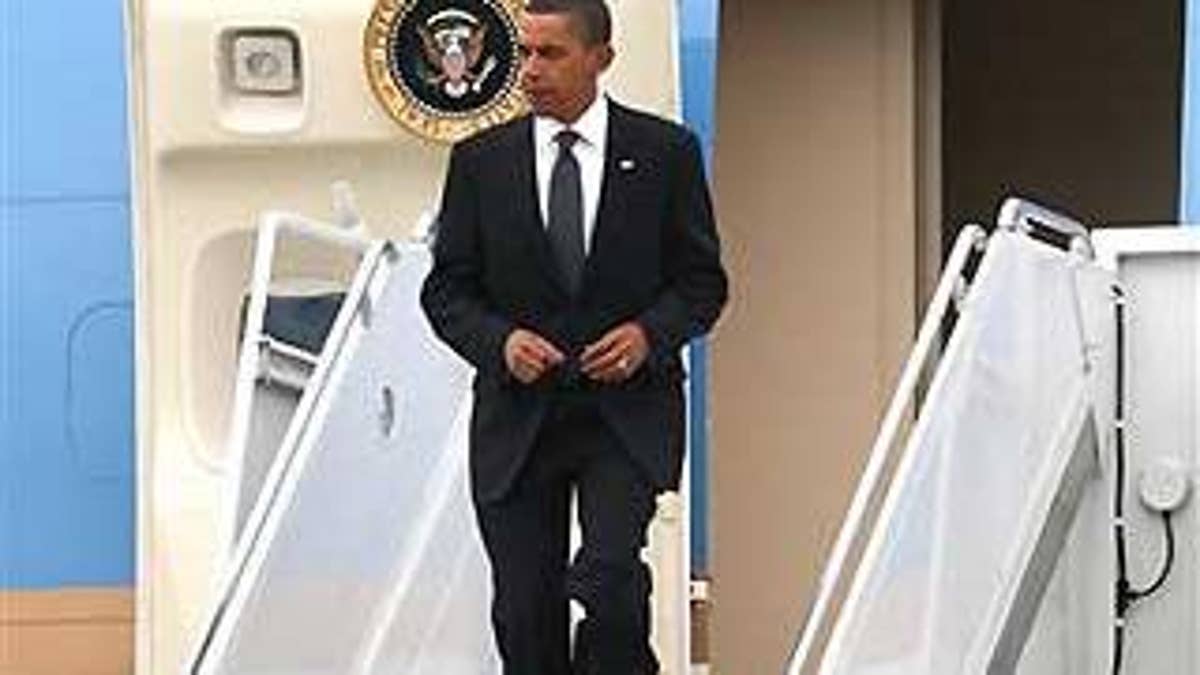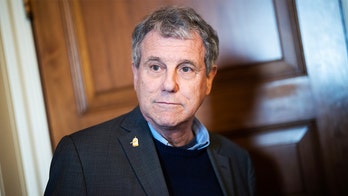
DEVELOPING ...
Hours before President Obama was set to deliver a make-or-break speech on health care reform, a top Senate negotiator conceded the government-run insurance program so dear to the president's supporters cannot pass the Senate.
Sen. Max Baucus, D-Mont., who was trying to hammer out the details of a bipartisan compromise Wednesday with five other senators, announced that he would be moving ahead with or without Republican support.
But he made clear that the so-called "public option" would not be part of any deal with his name on it.
"The public option cannot pass the Senate," Baucus said.
ORIGINAL STORY ...
As President Obama gears up for a make-or-break speech on health care to be delivered on Capitol Hill Wednesday night, a small band of senators had been seen as the source for what could be the final word.
The Senate Finance Committee's "Gang of Six" -- made up of three Democrats and three Republicans -- were meeting Wednesday to hammer out details, of which only they and the devil know right now.
Committee Chairman Max Baucus, the head of the gang, had said he wants a plan to give to the president before the 8 p.m. ET address, but as the day wore on, the chances of a deal seemed less and less likely.
Baucus reportedly said he was willing to put forth legislation as early as next week and go for it without any Republican support if necessary.
Watch President Obama's address to a joint session of Congress and the Republican response at 8 p.m. ET on FOX News Channel and FOXNews.com.
But others tried to take the pressure off the time clock. Sen. Kent Conrad, D-N.C., a member of the Gang of Six, said the group wouldn't have any great revelation.
"It isn't 'get it done by 2 o'clock or it's not going to happen.' That's just not the way it works," said
"There is a sense of urgency but that has to be counterbalanced by the task of getting it done right, not getting it done quickly," added Sen. Ben Nelson, D-Neb.
Obama has spent much of the summer trying to drive back criticism -- loudly on display at town hall meetings across the country -- about government-sponsored health care reforms. He has offered explanations for what the program will not do but so far has said little about what he will insist be in the legislation.
Hopes are he will lay it all out in his address to Congress, still being written but expected to go about 35 minutes.
Obama has indicated he wants a so-called public option, but so far has not said he will demand it. He also has not said he would veto a package that omits a government-run health insurance program.
In an interview that aired Wednesday morning on ABC's "Good Morning America," the president said he doesn't want a package that will add one dime to the deficit nor does he plan to stand on ideology. For him, time is of the essence.
"I think what the country is going to know is exactly what I think will solve our health care crisis, they will have a lot of clarity about what I think is the best to move forward. So the intent of the speech is to A, make sure that the American people know exactly what it is we are proposing, B, to make sure that Democrats and Republicans understand that I am open to new ideas, that not being rigid and ideological, but we do intend to get something done this year," the president said.
But Senate Minority Leader Mitch McConnell said "the only thing bipartisan" about the legislative debate so far is the opposition. He proposed tort reform and changing the way medical malpractice suits are resolved. He said that insurance reforms, like intrastate competition, portability and no exclusions for pre-existing conditions were all areas where the two sides could "rally a broad bipartisan agreement."
Speaking to reporters on the way to New York City where the president was to attend a memorial service for the late broadcaster Walter Cronkite, White House Press Secretary Robert Gibbs suggested that the Finance Committee could be the key to a deal.
Obama is hopeful that the committee "can get something done in a bipartisan way," Gibbs said.
"I think Senator Baucus has been working with this group of senators for almost a year on getting something out of the committee," Gibbs said. "So obviously we're hopeful that something can get done in that committee. That would obviously be an important milestone in this reform."
Early Wednesday, Gibbs told FOX News that the president envisions a plan that is not for the 180 million people with private insurance through employers nor will it affect people already receiving health care through Medicare, Medicaid or the Veterans Affairs Department.
"It's just for people on private insurance, individual, small group marketplace that's going to get the additional opportunity through competition to compare one insurance company versus another in providing that choice to cover their families and cover their small businesses," he said.
Gibbs added that the program will not necessarily to be run "on big government subsidies."
"They have to operate with the premiums they collect. But they probably will be somewhat more efficient in this way. They are not going to have bean counter after bean counter cherry pick" among providers and plans, he said.
On Tuesday, Baucus circulated a proposal that would cost $900 billion over 10 years and guarantee coverage for nearly all Americans, regardless of medical problems. Fees on insurers, drug companies and others in the health care industry would finance tax credits to help expand coverage.
One provision would fine families up to $3,800 for failing to buy health insurance, essentially requiring that everyone have medical coverage, much like the case with car insurance. Obama rejected a mandate, and fines, during his presidential campaign.
Also run up the flag pole last week by gang member Sen. Olympia Snowe, R-Maine, was a "trigger," which would create scenarios for when and how a government-run system would kick in. Liberal Democrats have vacillated on whether that would be a deal-breaker.
Gibbs said Congress is closer than ever to getting something done because the president let the committees -- five so far -- write the final product rather than offering a plan of his own, a strategy that ensnared former President Bill Clinton's attempts for reform in 1993.
"I think if representatives and senators and the president listen to the American people,
what they are telling them quite clearly is that we have to do something about health care. We have talked about this for decades," Gibbs said.
But it's concern that the president isn't listening to the American people that has Republicans wondering if compromise is within reach.
"I believe it would benefit the country more if Mr. Obama was coming to Capitol Hill to listen instead of to lobby for votes for a health care plan that will end up leading to rationed care, tax hikes and job losses. That's the message I heard from the 5,000 people who came to my town hall meetings in August, and it's a message the president needs to hear too," said Rep. Joe Barton, R-Texas, ranking member of the House Energy and Commerce Committee.
But the president will have to contend with more than just conservative Republicans. If he demands a government-run system, he could lose "Blue Dog" fiscally moderate Democrats; if he does not insist on a government option, he may lose liberal Democrats.
"We will have a bill, it will be a good bill that will make sure that all Americans have access to affordable health care, and I believe it will have a public option," said Rep. Jan Schakowsky, D-Ill., a member of the House Energy and Commerce Committee.
Schakowsky said she would support a single-payer plan if it were on the table, but Americans are not ready for it.
"I would in fact if this were the most efficient way to deliver health care, if we were starting from the beginning, a Medicare-for-life proposal for all Americans, but obviously that is not something people have any confidence in right now.




